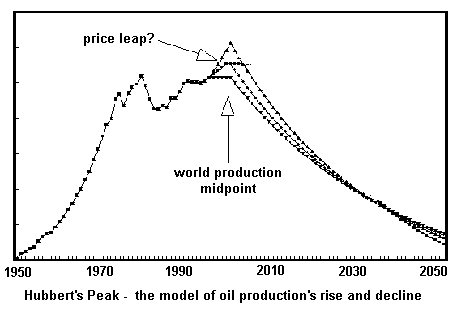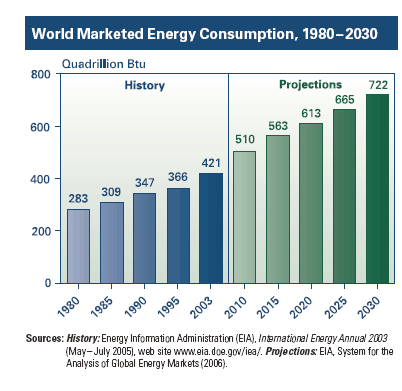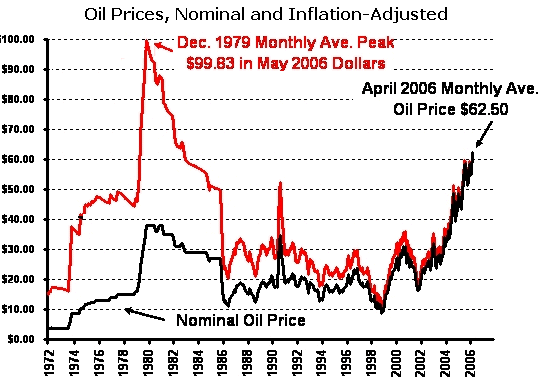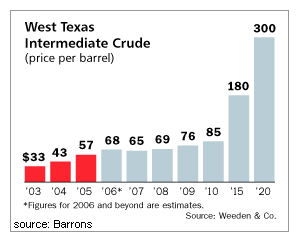

|
| weblog/wEssays archives | home | |
|
Peak Oil: Denial Won't Fill Your Tank (April 12, 2007) Today is "Financial Titanic Day," when we honor the timeless metaphor offered by the "unsinkable" Titanic. The financial ship has already struck the iceberg of reckless speculation which has torn a gaping gash below the waterline, dooming the "unsinkable" global economy to the depths of a two-mile deep recession. The first four watertight compartments have been slashed open, and the Plunge Protection Team's massive pumps could keep up with the leaks--but alas, the fifth watertight compartment has been compromised, and even the mighty PPT pumps cannot save the ship from foundering. Today's topic: Peak Oil. Production has peaked but denial rules. The band is still playing on deck even as the ship lists. Just for context, here are gasoline prices I paid in high-tax, refineries-always-offline California:  8/26/02 $1.44/gal
8/26/02 $1.44/gal
1/31/04 1.65/gal 2/3/05 $1.97/gal today $3.22/gal The price of gasoline has doubled in about 3 years, and risen 50% in 2 years. Does this suggest supply is meeting demand? You know the story, but I'll summarize it: 


Resource Analyst and frequent contributor U. Doran has suggested the following stories for documentation that super-giant fields in Mexico and Saudi Arabia have already peaked and are declining rapidly. interview with Twilight in the Desert author Matt Simmons Saudi Oil Production Declines Further Evidence of Saudi Arabia's Oil Production Decline Further Forensics on Saudi Oil Supply Iran's Long Term Energy Problems There is one alternative which is actually practical: massive development of solar power. This book does an excellent job of outlining how solar electrical generation could cut oil use by half--which would be a darned good start: The Solar Economy: Renewable Energy for a Sustainable Global Future. For more on this subject and a wide array of other topics, please visit my weblog. copyright © 2007 Charles Hugh Smith. All rights reserved in all media. I would be honored if you linked this wEssay to your site, or printed a copy for your own use. |
||
| weblog/wEssays | home |